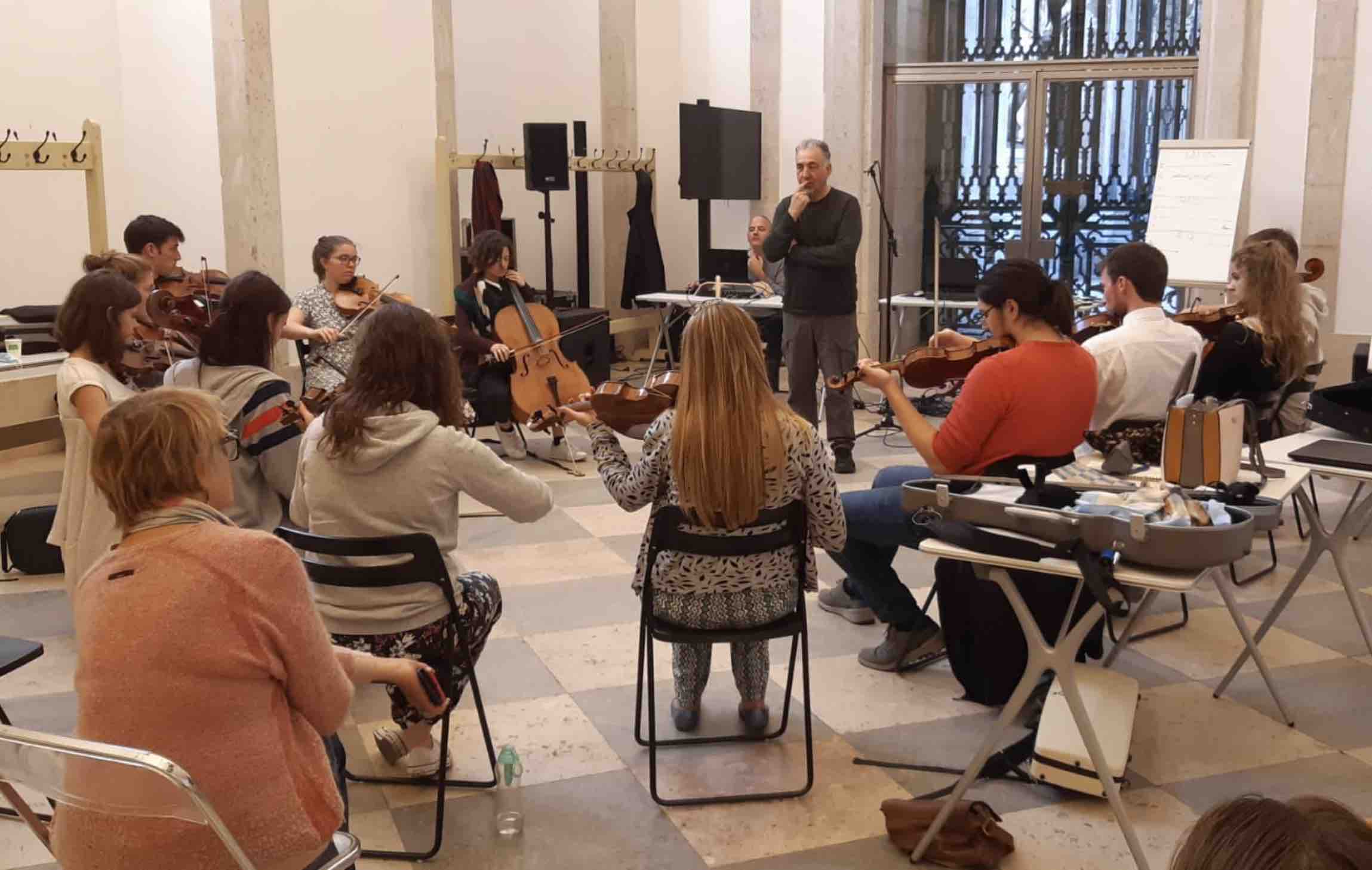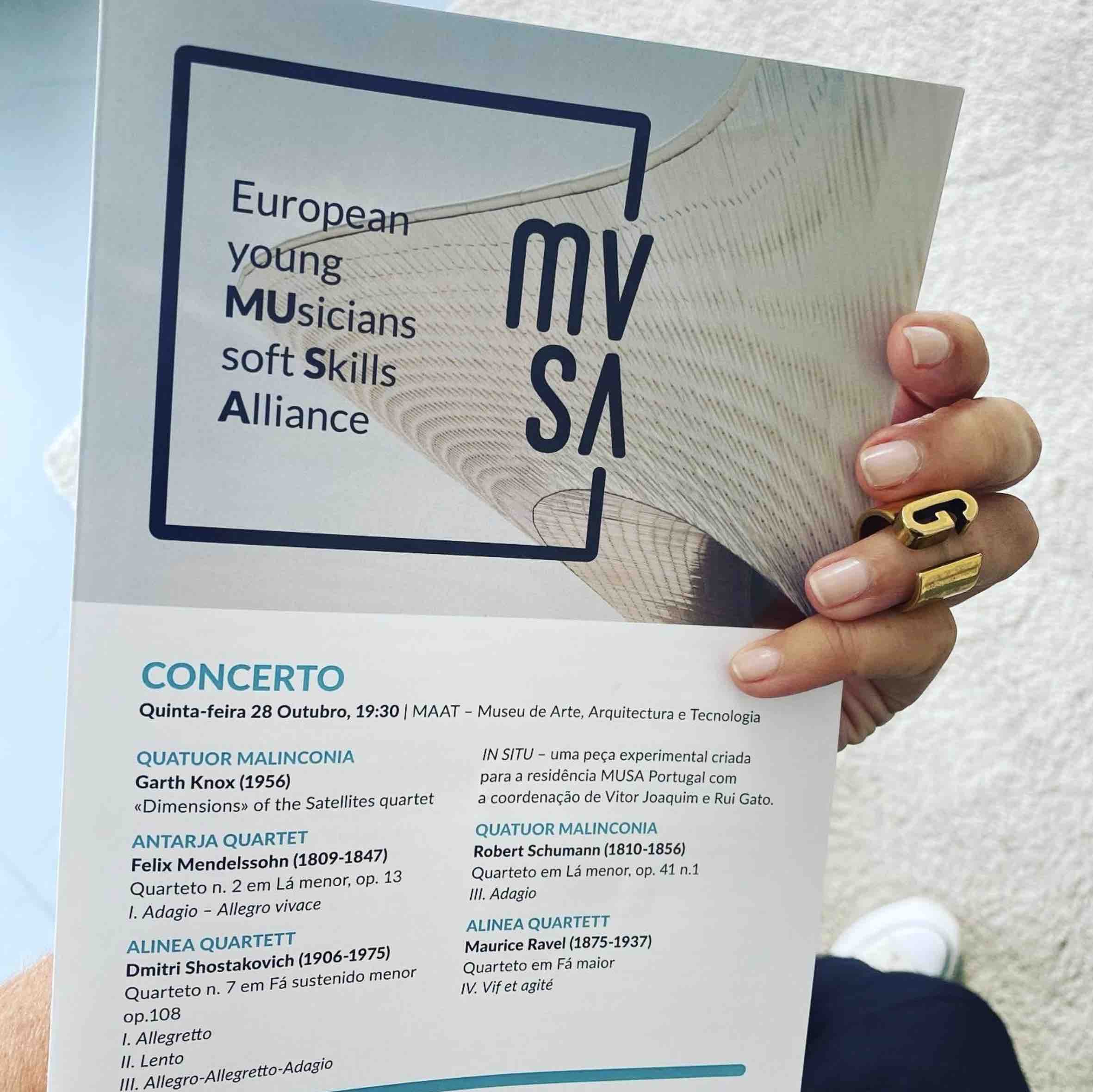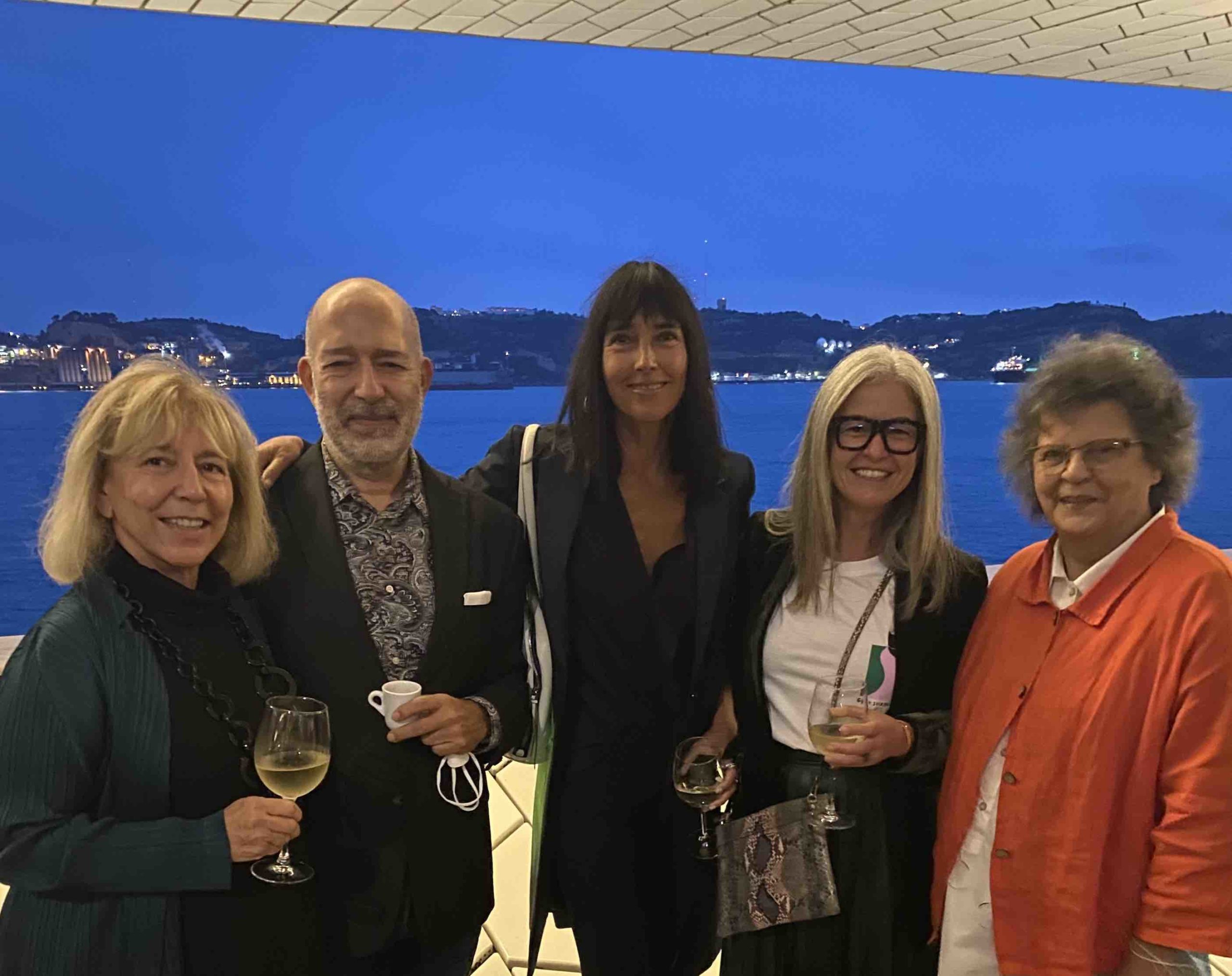MUSA
Portugal, 2020
Artistic Director of Portuguese Participation
MUSA – European young MUsicians soft Skills Alliance – is an European project of professional training dedicated to young string quartets. It aims to provide knowledge and skills of entrepreneurship that may be lacking in general curricula of musical education, which are fundamental for the construction of successful professional careers.
MUSA is directed to young professional string quartets, composed of musicians between 20 and 35 years of age and focusing on chamber music repertoires.
The project is co-financed by the programme Erasmus+ from the European Union with a strategic partnership that supports innovation. This collaboration is composed by: Le Dimore del Quartetto S.r.l. Imprensa Socialeas the main promoter, IED – Istituto Europeo di Design e ASK – Centre for Research on Management and Economics of Arts and Culture Institutions in Milan Milão (Italy), ProQuartet – Centre européen de musique de chambre de Paris e La Ferme de Villefavard en Limousin di Villefavard (France), and experimentadesign in Lisbon (Portugal).
In Portugal, the programme was curated and produced by experimentadesign and took place in Mafra and Lisbon – a strategic decision that highlighted the importance of cultural decentralisation and cooperation. The programme’s theme focused on the importance of culture in the development of soft skills, as well as the role of cultural interdisciplinarity in this process, leading the quartets to explore the relationship of classical music with dimensions of design, architecture, set design, contemporary music and plastic arts. They were taught by a group of 19 protagonists and specialists in the referred areas, giving the quartets the opportunity to reach out to new realities that can have a positive contribution to their professional lives. From 25th to 30th October, Portugal received 12 young musicians, who were part of three different classical quartets from Germany, France and Poland, to participate in this pioneering and innovative program in the field of education.
The architects João Belo Rodeia and Ana Tostões introduced the quartets to the bases of knowledge of architecture and space, and their influence in musical performance; the curator Delfim Sardo explored the relationship between contemporary art and music and the way both have been forms of expression throughout the centuries and good indicators of social and cultural movements; Luísa Cunha developed an intimate approach, more personal to her own artistic practice, in which music and sound have a prominent role. The designer José Álvaro Correia focused on themes related to light design and the stage directors and designers João Garcia Miguel, Jean Paul Bucchieri, Amir Hosseinpour and Jonathan Lunn guided the quartets through an analysis about the possible relations of stage direction and space composition in performance arts with music; the graphic designer Ana Cunha highlighted the importance of graphic design in the development of each quartet’s identity, while the creative Tomás Froes focused on strategic design as communication device. The musicians and sound designers Rui Gato e Vitor Joaquim introduced concepts related to sacred geometry, contemporary musical composition and sound design, and the musicians Frederico Gato, José Manuel Neto and João Tiago Oliveira worked on a performative workshop about the portuguese guitar. The designer Miguel Vieira Baptista introduced ideas related to product design, mainly about the study of materials in the construction and exploration of musical artifacts, while the master Óscar Cardoso taught the participants how to make a Portuguese guitar. Finally, the curator and artistic director GMG gave the last workshop centered around concepts of multidisciplinarity, contamination and experimentation.
With the support of the Municipality of Mafra, the Palace of Mafra and the EDP Foundation, students were able to stay in Mafra during the residency, considering that the workshops took place in the National Palace of Mafra – part of the UNESCO heritage and where the future Museum of Music will be installed – Central Tejo and MAAT (Museum of Art and Technology) in Lisbon. The architectural and temporal profile of the three selected buildings, as well as the contents that they host – quite different from each other – are in themselves a training vehicle, a form of highlighting the impact of space in the creative and interpretive process.
The programme also included two moments of public presentation in the form of concerts performed by the quartets, in which they were able to integrate and apply some of the skills and knowledge learnt during the residency. The first took place in MAAT on October 28 around 7pm, performed in the Oval Room, alongside the installation Lisbon Dots by the artist Carsten Höller, which was part of his exhibition DAY. The programme of the concert oscillated between pieces by the Romantic composers Mendelssohn, Schumann and Ravel, the post Romantic Shostakovich and the contemporary Garth Knox. It also included an experimental piece in situ developed during the workshops, coordinated by Vitor Joaquim and Rui Gato. The second concert occurred in the National Palace of Mafra, in the Diana Room, on 30 October at 11h30 am, having a greater focus on two complete pieces by Mendelssohn and Schumann.
Finishing in October 2022 with a final concert in Brussels and a session where results will be presented, the programme also includes the launch of a handbook for higher education programmes on cultural entrepreneurship for young musicians, alongside a research publication about the educational and social value of the European cultural heritage as an economic catalyst and job creator. This will present a series of guidelines developed to help organisations that would be interested in using the format of the MUSA programme in similar contexts of classical music education.


